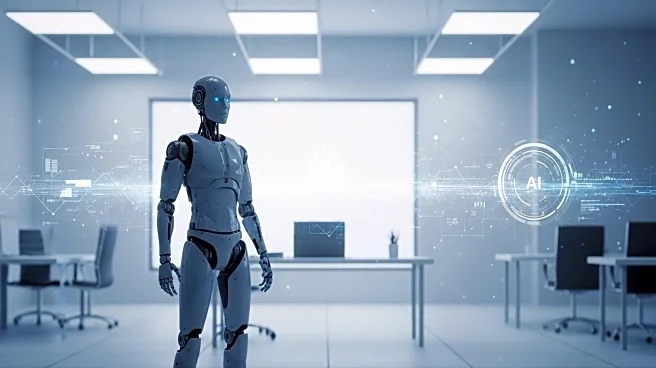What is the story about?
What's Happening?
Luis von Ahn, CEO of Duolingo, has emphasized the role of artificial intelligence in significantly enhancing employee productivity without resorting to layoffs. Speaking at the Fast Company Innovation Festival, von Ahn stated that AI has enabled Duolingo's workforce to produce content at a rate four to five times faster than before. This productivity boost is attributed to AI's ability to automate routine tasks, allowing employees to focus on more creative endeavors. Duolingo's AI initiatives include projects like Lily, an AI agent for language practice, and AI-driven chess lessons. The company has also raised its revenue projections for 2025, reflecting confidence in its AI strategy.
Why It's Important?
Duolingo's approach to integrating AI highlights a growing trend among tech companies to use technology to enhance, rather than replace, human labor. This strategy not only boosts productivity but also addresses concerns about job displacement due to automation. By maintaining its workforce and focusing on AI-driven growth, Duolingo sets a precedent for balancing technological advancement with employee retention. The company's success in this area could influence other firms to adopt similar strategies, potentially reshaping workforce dynamics in the tech industry.
Beyond the Headlines
Duolingo's AI strategy raises important questions about the future of work and the ethical implications of automation. While AI can enhance productivity, it also necessitates a reevaluation of workforce roles and skills. Companies may need to invest in employee training to ensure that workers can effectively collaborate with AI systems. Additionally, the long-term impact of AI on employment levels and job quality remains a critical area for policymakers and business leaders to address.

















